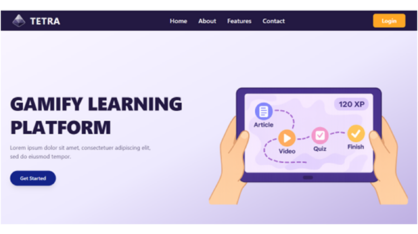In the current digital age, information is at our fingertips 24/7. With access to information, it has become handy to solve problems and learn from others. This is peer learning, and it’s one of the most valuable skills any employee can have. Peer learning means learning from someone who has had similar experiences or knows something in-depth. It helps you understand things on a deeper level, dig deeper into concepts, gain self-awareness, and learn how other people have solved similar problems in the past. In some cases it is also about learning from the peers of completely different background. It helps you understand the role of different fields and their interconnections. It’s not just helpful for professional growth; it’s also essential for employee retention and building a company culture that employees want to be a part of. If you’re interested in finding ways to improve your peer learning skills, you can continue reading the article below
Set meaningful goals for peer learning
You can’t expect to improve a skill if you don’t know what your goals are. Goals help you focus on what you want to achieve, and they give you a sense of purpose. If you don’t have goals, you’re likely to fall into the trap of wasting time on things that don’t matter. Your peer learning goals might be sparked by an upcoming project you’ve been assigned, or they could be sparked by your desire to learn more about something you’re particularly passionate about. If you want to set goals for peer learning, it’s essential you know what you want to achieve and why.
For example, you might want to learn skills that your teammate has, so in this case, this is a goal you can set throughout the year and make a conscious effort to achieve.
Start with a Why? (Understanding the context)
Before you dive headfirst into learning from your peers, it’s essential you understand the context behind why you need to improve your peer learning skills in the first place. Why are you trying to learn from others? Is it because there is something you don’t know that would be valuable to know? Or is it because you want to help your fellow employees be better at their job as well? Knowing why you are trying to improve your peer learning skills will help you focus on the right things and avoid a scatterbrained approach. When you know why you need to improve your peer learning skills, it’s easier to select the right tools and methods for learning.
Build your own knowledge through reading and researching
One of the best ways to improve your peer learning skills is to build your own knowledge on a subject through reading and researching. When you’re reading, you’re actively participating in the process rather than being a passive observer. It’s up to you to interpret the information and organize it in a way that makes sense to you. When you read something that sparks an “aha” moment, it’s important you take note and make sure you don’t forget it. Peer learning is connected to individual learning as it enables us to first learn individually and then shared it with a group of people having similar interests. For example, one stimulates the other and it forms a learning loop. It gives us freedom to explore a particular subject according to our own interest and then have the possibility to discuss and share ideas.
Take part in office events and activities (networking)
Part of improving your peer learning skills is increasing your awareness of how others are thinking and what they are interested in. This is easier said than done if you keep to yourself and don’t actively participate in office events. Participating in events and activities not only allows you to get to know your coworkers better (and vice versa), but it also allows you to explore your interests and learn about things that interest you. When you take part in office events and activities, you get to learn about the topics and interests your peers are interested in and the way they like to learn. It also allows you to make connections with people that you might not have otherwise, which is great for building workplace relationships and is essential for peer learning. Also, it doesn’t always have to formal learning set up and doesn’t have to depend on ‘organised’ form of gathering for sharing knowledge. It can be personal openness, curiosity and friendliness that helps in fostering a culture of mutual helpfulness at work.
Don’t shy away from giving feedback
When we think of peer learning, we automatically assume it means being on the receiving end of information. When someone is telling you about their experience or something they know in-depth, it’s easy to let them do all the talking and let your mind wander. But actively listening to your peers and giving feedback when they are done talking is essential to peer learning. When you are actively listening to your peers, you are challenging yourself to stay focused and engaged. Actively listening to your peers will help you learn more about your colleagues and give you the chance to give feedback that could be helpful for them and for you.
Conclusion
In the current digital age, information is at our fingertips 24/7. With access to information, it has become handy to solve problems and learn from others. This is peer learning, and it’s one of the most valuable skills any employee can have. Peer learning means learning from someone who has had similar experiences or knows something in-depth. It helps you understand things on a deeper level, dig deeper into concepts, gain self-awareness, and learn how other people have solved similar problems in the past. In some cases it is also about learning from the peers of completely different background. It helps you understand the role of different fields and their interconnections. It’s not just helpful for professional growth; it’s also essential for employee retention and building a company culture that employees want to be a part of. If you’re interested in finding ways to improve your peer learning skills, you can continue reading the article below
Set meaningful goals for peer learning
You can’t expect to improve a skill if you don’t know what your goals are. Goals help you focus on what you want to achieve, and they give you a sense of purpose. If you don’t have goals, you’re likely to fall into the trap of wasting time on things that don’t matter. Your peer learning goals might be sparked by an upcoming project you’ve been assigned, or they could be sparked by your desire to learn more about something you’re particularly passionate about. If you want to set goals for peer learning, it’s essential you know what you want to achieve and why.
For example, you might want to learn skills that your teammate has, so in this case, this is a goal you can set throughout the year and make a conscious effort to achieve.
Start with a Why? (Understanding the context)
Before you dive headfirst into learning from your peers, it’s essential you understand the context behind why you need to improve your peer learning skills in the first place. Why are you trying to learn from others? Is it because there is something you don’t know that would be valuable to know? Or is it because you want to help your fellow employees be better at their job as well? Knowing why you are trying to improve your peer learning skills will help you focus on the right things and avoid a scatterbrained approach. When you know why you need to improve your peer learning skills, it’s easier to select the right tools and methods for learning.
Build your own knowledge through reading and researching
One of the best ways to improve your peer learning skills is to build your own knowledge on a subject through reading and researching. When you’re reading, you’re actively participating in the process rather than being a passive observer. It’s up to you to interpret the information and organize it in a way that makes sense to you. When you read something that sparks an “aha” moment, it’s important you take note and make sure you don’t forget it. Peer learning is connected to individual learning as it enables us to first learn individually and then shared it with a group of people having similar interests. For example, one stimulates the other and it forms a learning loop. It gives us freedom to explore a particular subject according to our own interest and then have the possibility to discuss and share ideas.
Take part in office events and activities (networking)
Part of improving your peer learning skills is increasing your awareness of how others are thinking and what they are interested in. This is easier said than done if you keep to yourself and don’t actively participate in office events. Participating in events and activities not only allows you to get to know your coworkers better (and vice versa), but it also allows you to explore your interests and learn about things that interest you. When you take part in office events and activities, you get to learn about the topics and interests your peers are interested in and the way they like to learn. It also allows you to make connections with people that you might not have otherwise, which is great for building workplace relationships and is essential for peer learning. Also, it doesn’t always have to formal learning set up and doesn’t have to depend on ‘organised’ form of gathering for sharing knowledge. It can be personal openness, curiosity and friendliness that helps in fostering a culture of mutual helpfulness at work.
Don’t shy away from giving feedback
When we think of peer learning, we automatically assume it means being on the receiving end of information. When someone is telling you about their experience or something they know in-depth, it’s easy to let them do all the talking and let your mind wander. But actively listening to your peers and giving feedback when they are done talking is essential to peer learning. When you are actively listening to your peers, you are challenging yourself to stay focused and engaged. Actively listening to your peers will help you learn more about your colleagues and give you the chance to give feedback that could be helpful for them and for you.
Conclusion
Peer learning can be difficult to approach if you’re not sure where to start or what tools to use. But it’s essential for employee retention and conveying of tacit knowledge. These are few of the many points that might be helpful in getting started.
Peer learning can be difficult to approach if you’re not sure where to start or what tools to use. But it’s essential for employee retention and conveying of tacit knowledge. These are few of the many points that might be helpful in getting started.




